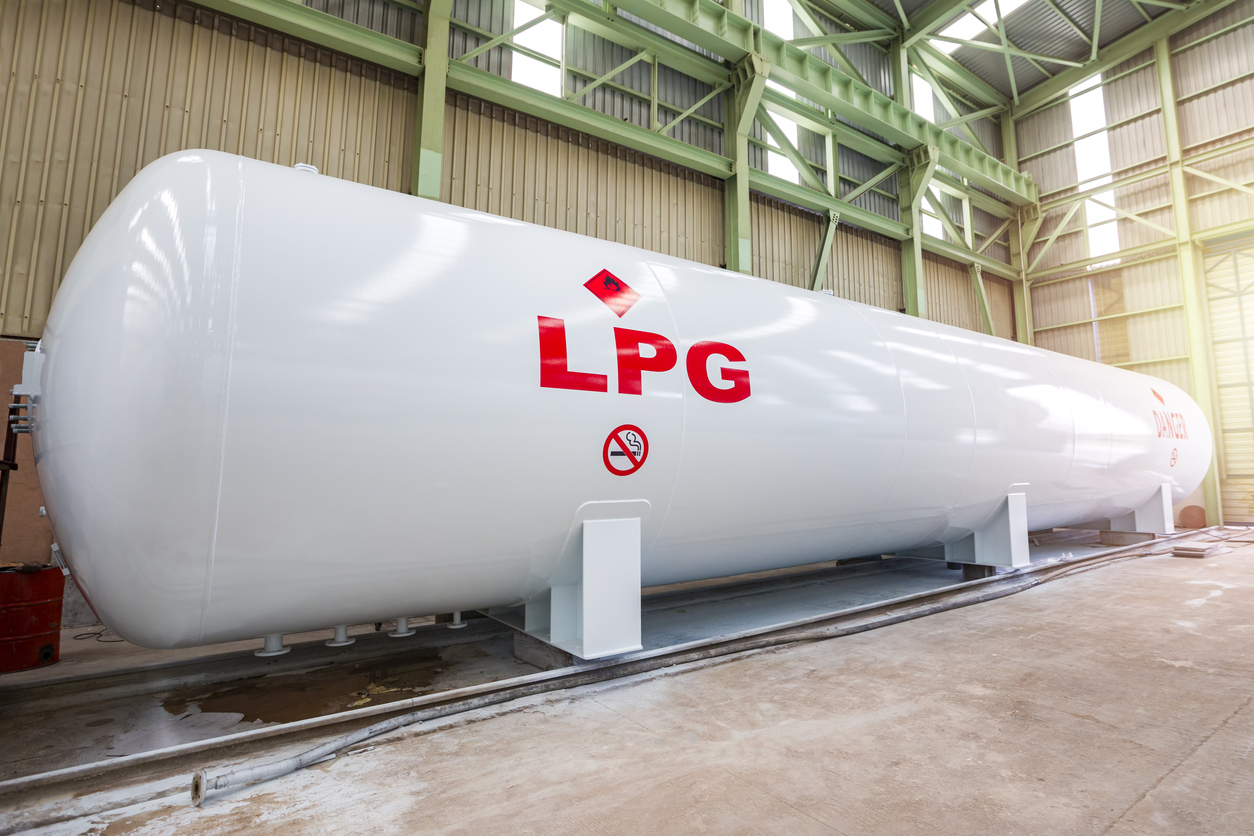The Hidden Impact of Logistics on the Environment: A Sustainable Perspective
The Hidden Impact of Logistics on the Environment: A Sustainable Perspective
Welcome to our latest blog post, where we delve into a topic that often goes unnoticed: the hidden impact of logistics on the environment. In an era where sustainability is gaining momentum, it’s crucial to examine every aspect of our lives and uncover how each industry plays a role in shaping the future of our planet. Today, we shed light on the unsung hero or villain – depending on how you look at it – that is logistics. Join us as we explore the intricate web connecting supply chains, transportation networks, and environmental responsibility through a sustainable perspective. Get ready to be surprised by what lies beneath this seemingly innocuous field and discover how small changes can make significant differences for Mother Earth!
Introduction to the topic of sustainability in logistics
Introduction to the Topic of Sustainability in Logistics
Sustainability has become a buzzword in recent years, and for good reason. It refers to meeting our current needs without compromising the ability of future generations to meet their own needs. As we continue to face environmental challenges such as climate change, pollution, and resource depletion, it has become increasingly important for industries to adopt sustainable practices.
One industry that has a significant impact on the environment is logistics. The term “logistics” encompasses all activities involved in the transportation and storage of goods from their point of origin to their final destination. This includes everything from packaging and warehousing to shipping and delivery.
The global logistics industry is estimated to be worth over $5 trillion and is expected to continue growing due to increasing international trade. However, this growth comes at a cost – both economically and environmentally.
The Hidden Environmental Impact of Logistics
When we think about environmental sustainability, we often focus on industries such as energy production or agriculture. However, logistics plays a crucial role in contributing to environmental degradation. Here are some ways in which logistics impacts the environment:
1. Greenhouse Gas Emissions: According to a report by Smart Freight Centre, emissions from freight transport account for 9% of global carbon dioxide emissions. Trucks are the biggest contributor, accounting for 57% of these emissions.
The environmental impact of traditional logistics practices
The logistics industry plays a crucial role in the global economy, ensuring the timely and efficient delivery of goods to consumers all over the world. However, with this constant movement of goods comes a significant environmental impact that is often overlooked.
Traditional logistics practices contribute to air pollution, water pollution, and deforestation, among other negative effects on the environment. The transportation of goods through various modes such as trucks, ships, and planes release emissions such as carbon dioxide, nitrogen oxide, and particulate matter into the atmosphere. These emissions not only contribute to climate change but also have adverse effects on human health.
Moreover, traditional logistics practices rely heavily on fossil fuels for transportation and energy generation. This reliance on non-renewable resources further contributes to greenhouse gas emissions and depletes natural resources. In addition to this, the production of packaging materials used for shipping adds to the environmental impact by consuming energy and contributing to waste generation.
The use of land for warehouse facilities and infrastructure development also has a profound impact on the environment. Forests are cleared for construction purposes or converted into industrial zones, leading to loss of biodiversity and disruption of ecosystems. Moreover, these facilities often produce noise pollution which can disturb wildlife habitats.
Another major concern with traditional logistics practices is the inefficient use of resources. Due to lack of coordination between different stakeholders in the supply chain, there is often overproduction or excess inventory which leads to wastage of natural resources such as raw materials and water.
Current efforts towards sustainability within the logistics industry
The logistics industry plays a crucial role in the global economy, as it is responsible for the transportation of goods from manufacturers to consumers. However, this process also has a significant impact on the environment, with emissions from trucks, ships, and airplanes contributing to air pollution and climate change. As awareness about sustainability grows, there have been increased efforts within the logistics industry to reduce its environmental impact. In this section, we will explore some of the current initiatives and strategies being implemented by companies in the logistics industry towards achieving sustainability.
1. Green transportation
One of the key areas that companies are focusing on is reducing emissions from transportation. This can be achieved through various methods such as using alternative fuels like electric or hybrid vehicles, optimizing delivery routes to minimize fuel consumption and implementing eco-driving techniques. For example, UPS has invested in a fleet of electric vehicles and bikes for deliveries in urban areas.
2. Use of renewable energy
Another way companies are working towards sustainability is by using renewable energy sources such as solar or wind power to run their operations. This reduces their reliance on fossil fuels and helps lower their carbon footprint. Amazon has committed to powering 100% of its global operations with renewable energy by 2025.
3. Efficient packaging
Packaging materials used in shipping contribute significantly to waste generation and carbon emissions due to production processes and disposal methods. To address this issue, companies are adopting more sustainable packaging options such as recyclable or biodegradable materials that have a lower environmental impact.
Innovative solutions for sustainable logistics, such as green transportation and packaging
In today’s fast-paced world, the demand for efficient and reliable logistics is higher than ever. With the rise of e-commerce and global trade, the transportation of goods has become a crucial aspect of our daily lives. However, with this increase in logistics activities comes a significant impact on the environment.
The traditional methods of transportation and packaging used in logistics have been proven to have negative effects on our planet. The emissions from trucks, airplanes, ships, and trains contribute to air pollution and climate change. In addition, the excessive use of plastic packaging materials leads to an increase in waste that ends up polluting landfills and oceans.
To address these issues, innovative solutions for sustainable logistics have emerged. These solutions aim to reduce carbon emissions, minimize waste generation, and promote eco-friendly practices throughout the supply chain.
One such solution is green transportation, which refers to using environmentally friendly modes of transport such as electric vehicles (EVs), hybrid trucks, or even bicycles for last-mile delivery. EVs emit significantly less greenhouse gases compared to traditional gasoline or diesel-powered vehicles. Furthermore, using renewable energy sources to power these vehicles can further reduce their carbon footprint.
Another aspect of green transportation is optimizing routes through advanced technology like GPS tracking systems. This allows for more efficient delivery routes, reducing fuel consumption and emissions from unnecessary trips.
The benefits of implementing sustainable practices in logistics, both for the environment and businesses
The logistics industry plays a critical role in the global economy, connecting producers and consumers around the world. However, with this significant impact comes an equally significant environmental footprint. The transportation of goods through various modes such as air, road, rail, and sea contributes to carbon dioxide emissions, pollution, and resource depletion. As a result, there has been a growing push for businesses to implement sustainable practices in logistics to reduce their environmental impact.
Implementing sustainable practices in logistics not only benefits the environment but also offers numerous advantages for businesses. In this section, we will discuss some of the key benefits that come with adopting sustainability in logistics.
1. Reduced Carbon Footprint
One of the primary benefits of implementing sustainable practices in logistics is reducing carbon emissions. By optimizing supply chain processes and utilizing more environmentally friendly transportation options like electric or hybrid vehicles, businesses can significantly decrease their carbon footprint. This reduction not only helps combat climate change but also helps companies meet regulatory requirements and consumer expectations for greener operations.
2. Cost Savings
Sustainable logistics practices can also lead to cost savings for businesses. For instance, by using fuel-efficient trucks or switching to alternative modes of transportation like rail or waterways, companies can decrease their fuel costs significantly. Additionally, implementing efficient warehouse operations can reduce energy consumption and lower operational costs.
Moreover, investing in eco-friendly technologies such as solar panels or LED lighting systems can lead to long-term cost savings on utilities while reducing greenhouse gas emissions.
Challenges and obstacles in achieving sustainable logistics
Challenges and obstacles in achieving sustainable logistics can be attributed to various factors, including economic constraints, lack of infrastructure, technological limitations, and resistance to change. These challenges not only hinder the progress towards a more sustainable future but also impact the environment and society as a whole.
One of the biggest challenges faced by companies in achieving sustainable logistics is the economic constraints. Many businesses prioritize profit over sustainability, leading to short-sighted decisions that have negative environmental impacts. For example, using cheaper but polluting modes of transportation such as trucks instead of more eco-friendly options like rail or waterways to cut costs. This approach results in increased carbon emissions and contributes to air pollution, which has detrimental effects on public health.
Another major obstacle is the lack of adequate infrastructure for sustainable logistics practices. The inadequate development of alternative transport modes such as electric vehicles or renewable energy-powered ships makes it challenging for companies to switch from traditional fossil fuel-based transportation methods. Moreover, there is a lack of efficient waste management systems at ports and warehouses, making it difficult for businesses to reduce their environmental footprint.
Technological limitations are also hindering progress towards sustainable logistics. While there have been advancements in technology such as route optimization software and real-time tracking systems that help reduce emissions and improve efficiency, these solutions may not be accessible or affordable for all businesses. Additionally, developing new technologies requires significant investment and time commitment from companies.
Tips for consumers to support sustainable logistics
As consumers, we have the power to make a positive impact on the environment through our purchasing choices and habits. While we may not always think about it, the logistics industry plays a significant role in our daily lives and has a considerable impact on the environment. From transportation of goods to packaging materials, every aspect of logistics has an environmental footprint.
To reduce this impact and support sustainable logistics, there are several tips that consumers can follow:
1. Choose products with sustainable packaging: The first step towards supporting sustainable logistics is by choosing products with eco-friendly packaging. Look for items that come in minimal or recyclable packaging, such as glass bottles or paper bags. Avoid single-use plastic packaging whenever possible.
2. Buy local products: Buying locally produced goods reduces the distance traveled by products, which in turn decreases carbon emissions from transportation. Additionally, supporting local businesses helps boost the economy and creates job opportunities within your community.
3. Opt for greener modes of transport: When making online purchases, consider opting for companies that offer greener modes of transport such as electric vehicles or bicycles for delivery instead of gas-powered trucks. This small change can significantly reduce carbon emissions from transportation.
4. Consolidate your orders: If you frequently make online purchases, try to consolidate them into one order instead of multiple smaller ones. This reduces unnecessary trips made by delivery vehicles and decreases their carbon footprint.
Conclusion highlighting the importance of addressing the environmental impact of logistics and promoting sustainability.
Conclusion
It is evident that the logistics industry has a significant impact on the environment. From carbon emissions and waste generation to resource depletion and habitat destruction, the consequences of our global supply chain are far-reaching and alarming.
Therefore, addressing the environmental impact of logistics is crucial for the sustainability of our planet. As consumers, businesses, and governments alike, we must take responsibility for our actions and make conscious efforts to reduce our carbon footprint in this industry.
One way to achieve this is by promoting sustainable practices in logistics. This includes implementing green transportation methods such as electric vehicles or alternative fuels, optimizing route planning to reduce fuel consumption, and adopting efficient packaging techniques to minimize waste production. It also involves using technology like data analytics and artificial intelligence to optimize supply chain operations for maximum efficiency.
Moreover, there needs to be a shift towards circular economy models that prioritize reusing and recycling materials rather than discarding them. This will not only reduce waste but also conserve resources that are becoming increasingly scarce.
At the same time, it is essential to educate consumers about their role in promoting sustainability in logistics. By making informed choices about their purchases – opting for eco-friendly products with minimal packaging or buying from companies with sustainable supply chains – individuals can contribute towards reducing the environmental impact of logistics.
Governments play a crucial role in addressing this issue through policy changes and regulations. By incentivizing sustainable practices in logistics through tax breaks or subsidies for green initiatives, they can encourage businesses to adopt more environmentally friendly processes.








Comments are closed.